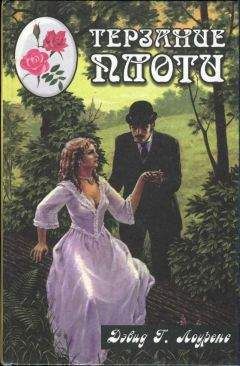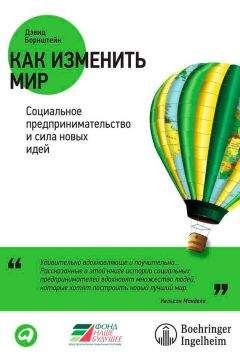Дэвид Пристланд - Красный флаг: история коммунизма
570
D. Caute, The Dancer Defects: The Struggle for Cultural Supremacy during the Cold War (Oxford, 2003), pp. 26—7.
571
Gerstle, American Crucible, pp. 249—56.
572
О конфликте евреев с коммунизмом см. Y. Slezkine, The Jewish Century (Princeton, 2004), pp. 313—15.
573
G. Lundestad, “Empire by Invitation? The United States and Western Europe, 1945—1952”, Journal of Peace Research 3 (1986), pp. 263—77.
574
NSC 51, US Policy towards Southeast Asia, 1 July 1949. Declassified Documents Reference System.
575
Djilas, Conversations, p. 141.
576
Ho Chi Minh, On Revolution. Selected Writings 1920—1966 (London, 1967), p. 5.
577
Об этом эпизоде см. W. Duiker, Ho Chi Minh: a Life (New York, 2000), pp. 57—62.
578
Пьер Броше ставит этот факт под сомнение. См. P. Brocheux, Но Chi Minh. A Biography, trans. С. Duiker (New York, 2007), p. 26.
579
E. Manela, The Wilsonian Moment: Self-determination and the International Origins of Anticolonial Nationalism (Oxford, 2007), p. 107.
580
Mao Zedong, “Study the Extremist Party”, 14 July 1919, in Mao’s Road to Power. Revolutionary Writings, 1912—1949 [MRPRW], ed. S. Schram (Armonk, NY, 1992), vol. i, p. 332.
581
Manela, Wilsonian Moment, pp. 23—30.
582
Duiker, Ho, pp. 46—55.
583
Цит. по Brocheux, Ho, p. 21.
584
Цит. по Duiker, Ho, p. 82.
585
Ho, On Revolution, p. 5.
586
Ho Chi Minh, Textes, 1914—1969, ed. A. Ruscio (Paris, 1990), p. 21, перевод из Brocheux, Ho, p. 12.
587
Первый съезд народов Востока. Стенографические отчеты. Пт., 1920. С. 5.
588
М. Roy, Memoirs (Bombay, 1964), p. 225.
589
Там же, с. 306.
590
Там же.
591
Там же, с. 379.
592
Lu Xun, “A Madman’s Diary”, in Lu Hsun, Selected Stories (New York, 2003), pp. 8, 18.
593
L. Ou-Fan Lee, “Literary Trends: The Quest for Modernity, 1895—1927”, in M. Goldman and L. Ou-Fan Lee, An Intellectual History of Modern China (Cambridge, 2002), p. 188.
594
Цит. по V. Schwarcz, The Chinese Enlightenment: Intellectuals and the Legacy of the May Fourth Movement of 1919 (Berkeley, 1986), p. 110.
595
Цит. там же, с. 109.
596
L. Feigon, Chen Duxiu: Founder of the Chinese Communist Party (Princeton, 1983), p. 104.
597
M. Meisner, Li Ta-Chao and the Origins of Chinese Marxism (New York, 1970), p. 34.
598
Об этом см. Feigon, Chen, p. 145.
599
D.-S. Suh, The Korean Communist Movement, 1918—1948 (Princeton, 1967), p. 132.
600
«Тхань Ньен», 20 февраля 1927, цит. по Huynh Kim Khanh, Vietnamese Comm.unism.,1925—1945 (Ithaca, 1982), p. 80.
601
W. Duiker, The Communist Road to Power in Vietnam (Boulder, 1996), pp. 27—8.
602
S. Wilson, The Comintern and the Japanese Communist Party, in T. Rees and A. Thorpe (eds.), International Communism and the Communist International, 1919—1943 (Manchester, 1998), pp. 285—307.
603
Schwarcz, Chinese Enlightenment, pp. 128—36.
604
“The True Story of Ah Q”, in Lu Hsun, Selected Stories, pp. 65—112.
605
Short, Mao: a Life (London, 1999), p. 86.
606
Цит. по Feigon, Chen, pp. 152—3.
607
Цит. по S. Smith, A Road is Made: Communism in Shanghai 1920—1927 (Honolulu, 2000), pp. 59—60.
608
Zhang Guotao, The Rise of the Chinese Communist Party. The Autobiography of Chang Kuo-tao (Lawrence, Kans., 1971), vol. i, p. 139.
609
J. Price, Cadres, Commanders and Commissars. The Training of the Chinese Communist Leadership (Folkestone, 1976), pp. 31—8.
610
Там же, сс. 90—93.
611
Yu Miin-Ling “Chiang Kaishek and the Policy of Alliance”, in R. Felber, M. Titarenko and A. Grigoriev, The Chinese Revolution in the 1920s. Between Triumph and Disaster (London, 2002), pp. 98—124.
612
S. Schram, Mao Tse-tung (Harmondsworth, 1966), p. 48.
613
E. Snow, Red Star over China (Harmondsworth, 1972), pp. 153—6.
614
A. Smedley, China Correspondent (London, 1984), pp. 121—2.
615
Мао Zedong, l April 1917, MRPRW, vol. i, p. 113.
616
Там же, с. 124.
617
S. Schram, The Thought of Mao Tse-Tung (Cambridge, 1989), p. 27.
618
H. Van de Ven, From Friend to Comrade: the Founding of the Chinese Communist Party, 1920—1927 (Berkeley, 1991), p. 45.
619
Schram, Thought of Mao, p. 46.
620
Li Zhisui, The Private Life of Chairman Mao: the Memoirs of Mao’s Personal Physician, trans. Tai Hung-chao (London, 1996), pp. 77, 103.
621
Snow, Red Star, pp. 112—13.
622
N. Knight, Rethinking Mao. Explorations in Mao Zedong’s Thought (Lanham, 2007), ch. 4.
623
Schram, Thought of Mao, p. 39.
624
Об этом эпизоде см. J. Chang and J. Halliday, Mao: the Unknown Story (London, 2006), p. 125.
625
H. Van de Ven, “New States of War. Communist and Nationalist Warfare and State Building, 1928—1934”, in Van de Ven (ed.), Warfare in Chinese History (Leiden, 2000), p. 335.
626
Там же, с. 361.
627
О разнице между двумя военными моделями см. там же, с. 323.
628
Мао Zedong, May 1930, MRPRW, vol. III, pp. 296—418. См. также Short, Mao, pp. 304—6.
629
Mao Zedong, June 1930, MRPRW, vol. III, p. 445.
630
Short, Mao, p. 286.
631
О мифе о «Великом походе» см. D. Apter and T. Saich, Revolutionary Discourse in Mao’s Republic (Cambridge, Mass., 1994), P. 85.
632
Это утверждается в Chang and Halliday, Mao, pp. 254—5.
633
Snow, Red Star, p. 64.
634
О понимании «китаизации» Мао см. Selected Works of Мао Tse-tung [SWMT] (Beijing, 1961), vol. ii, p. 209.
635
Smedley, China Correspondent, p. 122.
636
Об этом см. Schram, Thought of Mao, p. 92. О понятии датонг см. SWMT, vol. II, pp. 148—9.
637
Knight, Rethinking Mao, pp. 129—30.
638
См., например, его заметки о A Course in Dialectical Materialism by M. Shirokov and others, November 1936-April 1937, MRPRW, vol. iv, pp. 674—5.
639
О сложных связях марксизма с китайскими концептами в философии Мао см. Knight, Rethinking Мао, chs. 5, 7.
640
Отношение Мао к этому вопросу противоречиво. Шрам делает акцент на «волюнтаризме» Мао, на его оценке воли выше, чем экономики, см. S. Schram, “The Marxist”, in D. Wilson (ed.), Mao Tse-tung in the Scales of History (Cambridge, 1977), pp. 35—69. 06 ортодоксальности Мао см. A. Walder, “Marxism, Maoism and Social Change”, Modern China 1 (1977), pp. 101—18. Ник Найт утверждает, что Мао строго следует двусмысленной марксистской традиции. Knight, Rethinking Мао, ch.6, esp. p. 189.
641
Knight, Rethinking Mao, p. 141.
642
M. Selden, China in Revolution. The Yenan Way Revisited (Armonk, NY, 1995), p. 121.
643
G. Benton, “The Yenan «Literary Opposition»”, New Left Review 92 (1975), pp. 102—5; Dai Qing, Wang Shiwei and “Wild Lilies”. Rectification and Purges in the Chinese Communist Party, 1942—1944, eds. D. Apter and T. Cheek (Armonk, NY, 1994).
644
Selden, China; Apter and Saich, Revolutionary Discourse, pp. 211—13.
645
О чистке см. Apter and Saich, Revolutionary Discourse, pp. 279—88.
646
Там же, с. 285.
647
Chang and Halliday, Mao, p. 300.
648
Chen Yung-fa, “Suspect History and the Mass Line. Another «Yan’ an Way»”, in G. Hershatter et al. (eds.), Remapping China. Fissures in Historical Terrain (Stanford, 1996), pp. 242—60.
649
J. Byron and R. Pack, The Claws of the Dragon. Kang Sheng — The Evil Genius behind Mao — and his Legacy of Terror in People China (New York, 1992), p. 139.
650
F. Teiwes and W. Sun, “From a Leninist to a Charismatic Party; The CCP’s Changing Leadership, 1937—1945”, in T. Saich and H. Van de Ven (eds.), New Perspectives on the Chinese Communist Revolution (Armonk, NY, 1995), p. 378.
651
Цит. по Short, Mao, p. 392.
652


